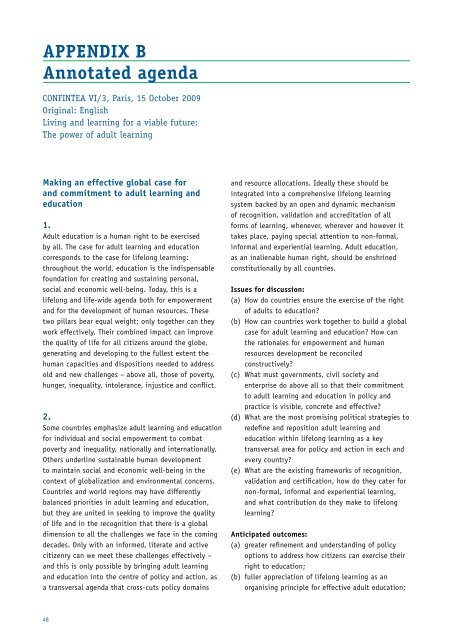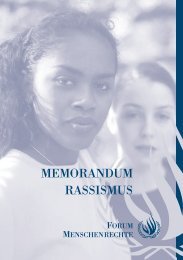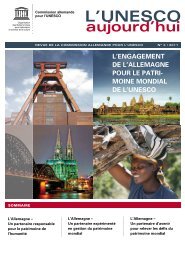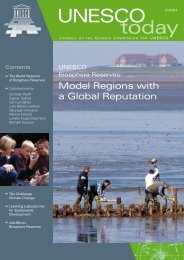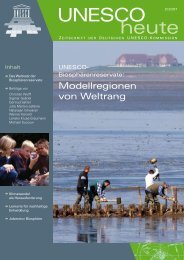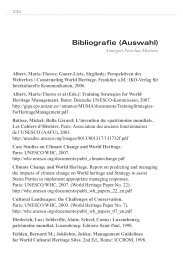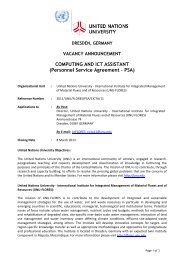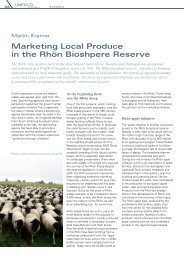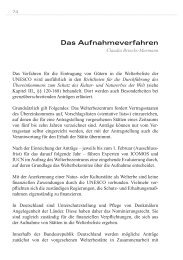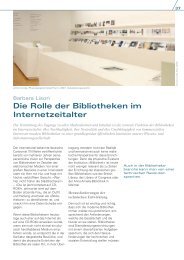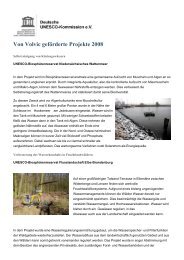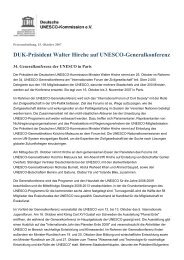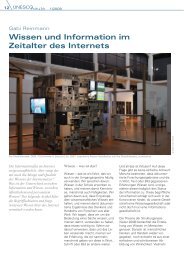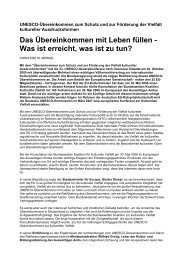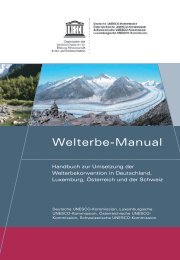CONFINTEA VI, final report - Unesco
CONFINTEA VI, final report - Unesco
CONFINTEA VI, final report - Unesco
You also want an ePaper? Increase the reach of your titles
YUMPU automatically turns print PDFs into web optimized ePapers that Google loves.
APPENDIX B<br />
Annotated agenda<br />
<strong>CONFINTEA</strong> <strong>VI</strong>/3, Paris, 15 October 2009<br />
Original: English<br />
Living and learning for a viable future:<br />
The power of adult learning<br />
Making an effective global case for<br />
and commitment to adult learning and<br />
education<br />
1.<br />
Adult education is a human right to be exercised<br />
by all. The case for adult learning and education<br />
corresponds to the case for lifelong learning:<br />
throughout the world, education is the indispensable<br />
foundation for creating and sustaining personal,<br />
social and economic well-being. Today, this is a<br />
lifelong and life-wide agenda both for empowerment<br />
and for the development of human resources. These<br />
two pillars bear equal weight; only together can they<br />
work effectively. Their combined impact can improve<br />
the quality of life for all citizens around the globe,<br />
generating and developing to the fullest extent the<br />
human capacities and dispositions needed to address<br />
old and new challenges – above all, those of poverty,<br />
hunger, inequality, intolerance, injustice and conflict.<br />
2.<br />
Some countries emphasize adult learning and education<br />
for individual and social empowerment to combat<br />
poverty and inequality, nationally and internationally.<br />
Others underline sustainable human development<br />
to maintain social and economic well-being in the<br />
context of globalization and environmental concerns.<br />
Countries and world regions may have differently<br />
balanced priorities in adult learning and education,<br />
but they are united in seeking to improve the quality<br />
of life and in the recognition that there is a global<br />
dimension to all the challenges we face in the coming<br />
decades. Only with an informed, literate and active<br />
citizenry can we meet these challenges effectively –<br />
and this is only possible by bringing adult learning<br />
and education into the centre of policy and action, as<br />
a transversal agenda that cross-cuts policy domains<br />
48<br />
and resource allocations. Ideally these should be<br />
integrated into a comprehensive lifelong learning<br />
system backed by an open and dynamic mechanism<br />
of recognition, validation and accreditation of all<br />
forms of learning, whenever, wherever and however it<br />
takes place, paying special attention to non-formal,<br />
informal and experiential learning. Adult education,<br />
as an inalienable human right, should be enshrined<br />
constitutionally by all countries.<br />
Issues for discussion:<br />
(a) How do countries ensure the exercise of the right<br />
of adults to education?<br />
(b) How can countries work together to build a global<br />
case for adult learning and education? How can<br />
the rationales for empowerment and human<br />
resources development be reconciled<br />
constructively?<br />
(c) What must governments, civil society and<br />
enterprise do above all so that their commitment<br />
to adult learning and education in policy and<br />
practice is visible, concrete and effective?<br />
(d) What are the most promising political strategies to<br />
redefine and reposition adult learning and<br />
education within lifelong learning as a key<br />
transversal area for policy and action in each and<br />
every country?<br />
(e) What are the existing frameworks of recognition,<br />
validation and certification, how do they cater for<br />
non-formal, informal and experiential learning,<br />
and what contribution do they make to lifelong<br />
learning?<br />
Anticipated outcomes:<br />
(a) greater refinement and understanding of policy<br />
options to address how citizens can exercise their<br />
right to education;<br />
(b) fuller appreciation of lifelong learning as an<br />
organising principle for effective adult education;


